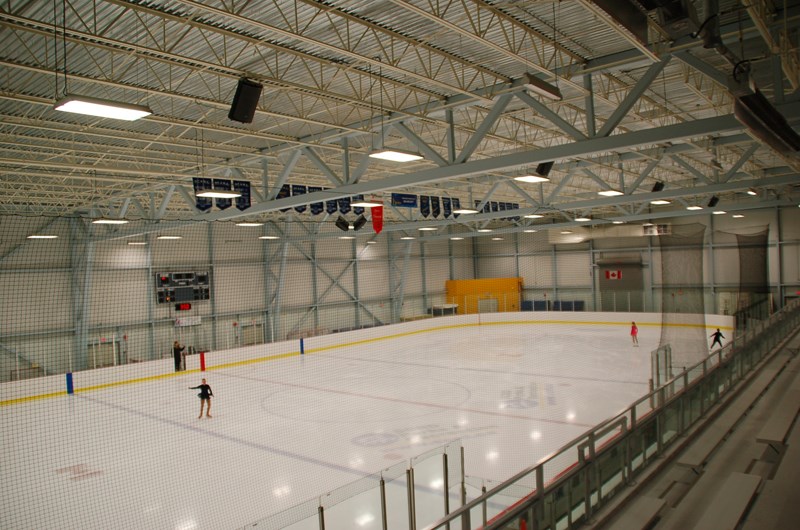The Sunshine Coast Skating Club is on the brink of collapse and will cease to exist within two years if the lack of spring and summer ice continues, JoAnne Bennison, a club director, said last week.
Speaking to the Sunshine Coast Regional District (SCRD) community services committee May 8 on behalf of the club, Bennison called on the SCRD to direct staff to work with user groups to find ways to keep at least one of its two arenas open for a minimum of 10 months a year.
“The problem is that the Sunshine Coast has less ice time with two arenas than we had with one,” Bennison said, reading from a submission to the committee. “We’ve gone from 10 months of ice a year to the current seven months, with a two-week hockey school in August. We don’t believe residents were expecting a reduction in ice availability when they voted for the second arena.”
While the SCRD, she said, has helped foster and build hockey programs at its facilities, “participation in public skating is down, the speed skating club has folded, and the Sunshine Coast Skating Club is on the brink of collapse.”
Bennison said the inadequate ice time has had “dire consequences” for the club, costing it volunteers, trained coaches and competitive skaters.
“Figure skaters can’t keep up with their peers who are able to train year round,” she said. “Once skaters reach the competitive level, many become discouraged and quit, or move off the Sunshine Coast to continue their training. This makes it extremely difficult to build a viable club.”
Responding to the delegation, West Howe Sound director Lee Turnbull expressed sympathy for the club, saying the reduction in overall ice time “was not my expectation either and was not the expectation of the taxpayers. I think this is a really large conversation.”
Paul Fenwick, general manager of community services, said he was “saddened when speed skating went down,” and called for moving forward with “a theme where we’re working together.”
Staff had looked into the feasibility of a second arena floor, Fenwick added, but “at the time there wasn’t a business case for that.”
Directors also emphasized the need for collaboration with the community, and staff said a report could be prepared by June or, at the latest, July.
In her submission, Bennison said if the club folded, the SCRD would lose $50,000 in annual revenue from the club, residents would no longer have access to Skate Canada’s learn-to-skate, CanPowerSkate or figure skating programs, and figure skaters would have to either leave their sport or travel to Vancouver.



